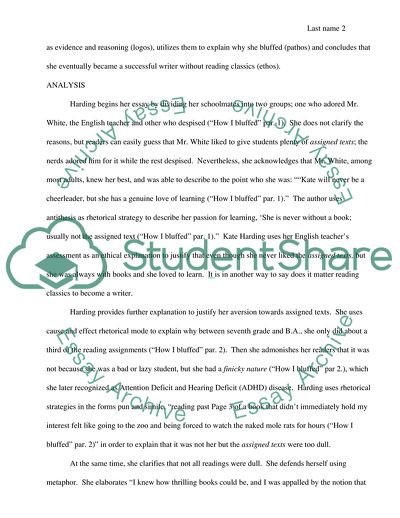Cite this document
(How I Bluffed My Way through College by Kate Harding Article, n.d.)
How I Bluffed My Way through College by Kate Harding Article. https://studentshare.org/education/1860504-rhetorical-analysis
How I Bluffed My Way through College by Kate Harding Article. https://studentshare.org/education/1860504-rhetorical-analysis
(How I Bluffed My Way through College by Kate Harding Article)
How I Bluffed My Way through College by Kate Harding Article. https://studentshare.org/education/1860504-rhetorical-analysis.
How I Bluffed My Way through College by Kate Harding Article. https://studentshare.org/education/1860504-rhetorical-analysis.
“How I Bluffed My Way through College by Kate Harding Article”. https://studentshare.org/education/1860504-rhetorical-analysis.


